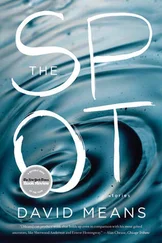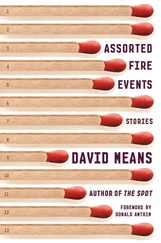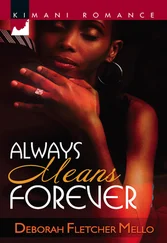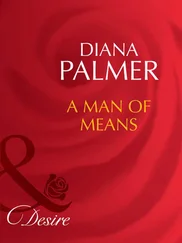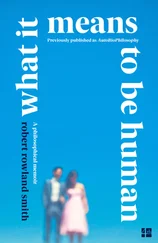He took another deep toke and then a short one and held it, holding, holding.
He passed the joint and watched as she nimbly took a hit, letting the smoke trickle.
“I lost my train of thought,” she said.
“I never had a train. Who wants a train when you can have this shit?”
They lay in the sand for a while and he looked at her through the glare, over the top of his arm, and tried to imagine the kind of letters they would’ve written back and forth, from the war on his side to the States on her side. Her letters would’ve been chatty, full of nursing stories, patients who were demanding in one way or another, doctors with their know-it-all attitudes, full of authority, the long, lonely night shifts at the desk, sorting files, the small minutiae of everyday life; his would be filled with urgency, written in a crabby longhand, giving faint details and avoiding the truth as much as possible.
* * *
When a storm began brewing to the west, a dark line over the parking lot, they ran to the car and drove a few miles down to the next beach, concrete car bumpers and spaces delineated by faded yellow lines, reminders of a better era when crowds had picnicked and barbecued and made use of the grills and the quaint stone hut and the fact that the state of Michigan had the funds to keep the water pump working. A sense of common destiny that had been lost in the last few years. They parked in a far corner and watched long curtains of rain steaming when they hit the hot asphalt. The sky darkened while lightning stabbed at the lake, sending up spumes of fire. Even before they started kissing it seemed like a sure thing that they’d have visionary sex, that a memory would surface — two souls sealed in a car by the lake — and then they were kissing, and she was sliding down, unbuckling his belt, he felt her lips on his belly and there was a flash, a quick image along with the lightning Klein with a pipe between his teeth, closing his lips and making the fish-suck and then opening them again he lifted his hips and shifted his weight against the seat, her fingers worked the waistband, two seconds of quivering, empty air until her mouth — a faint brush of breath — was close enough to feel. He slid into the open space of it, her tongue rolling softly. So this is , her tongue seemed to say, this is how it’s going to be. She kept at it while another flash of lightning pulsed against his closed eyelids, leaving a purple blot, thunder shook the car and the blot disappeared, Wendy on the fence, with the Queen Anne’s lace moving gently in the air, the smell of her herbal shampoo and the faint patchouli of her skin , he felt her mouth and he filled it, filled and filled and slipped out as she lifted herself above him, taking his palms and putting them flat on her hips, a sensation of guidance the tip nothing but the tip the tip just the tip of his cock a last flicker of fire and then he came, Rake’s face in black and white, a photograph on a file folder, mug-shot grimness and eyes furious, the paradox of being remote and captured at the same time .
When they were finished, the desire to be dressed and warm seemed to be all that was left.
He turned on the heater and the windshield wipers, the lake outside a fury of dark chop.
“I unfolded for a second again, I think.”
She was silent.
“You’re supposed to ask what I saw,” he said, but she didn’t ask. He buckled his belt while she fiddled with the radio dial, trying to find a signal strong enough to cut through the static, and he thought of Rake’s photograph in the vision, the look on his face, a look he recognized, he thought (though he couldn’t be sure), one Marine to another just before a snafu. Or maybe, he thought, kissing Wendy and reaching into the glove box to get a fresh joint — an apocalypse between each swipe of the wiper blades, fire waves rolling in toward shore, on the horizon bolts of lightning and small geysers rising, falling, devoured by immolation — maybe it was an orgasmic look. Blank and blissful. Tight, angry, happy. Filled to the brim but still wanting.
“It’s beyond weird out there,” Wendy was saying. “We’re living where water burns.”
“Where souls are enfolded,” he said.
“And then unfold,” she said, taking a deep hit.
“Unions are busted. Deals are made.”
“Deaths are avenged.”
“The good ones.”
“The ones that need to be,” she said, taking another hit.
Meg woke in a strange room, splintery, beaverboard walls, an old side table with a jug of water, a straight-backed chair with an embroidered cushion, a lamp with a tattered shade. She lay in bed and tried to orient herself, trying to remember. The shooting on the highway. The shooting in Elk Rapids. The farmhouse on the edge of nowhere, another shooting, the noise of the car engine and the endless unwinding of the road all slightly blurry in a way that told her time wasn’t at a standstill, exactly. The press of a tree branch against her arches as she stood in a tree looking down at a window. The weirdly soft pop pop of gunfire through window glass. The snort-sniff of Rake clearing gunk from his throat before launching into another soliloquy about the nature of his own violent tendencies.
A man with a big moon face came into the bedroom, pulled the shade, and asked again and again if she was awake until she said she was awake. He had a beard and wore a leather vest over a bare chest, hair thick and curly. He went back to the window and made a comment about the big Gitchi Gumi and then came back to her and sat on the bed and asked if she was hungry.
She clutched the sheet against her chin and looked up at him. He looked kindly, somehow, but mean, too. She waited until he spoke again. He said she had nothing to fear and that he wasn’t there to hurt her or anything like that. He said he’d leave her to get dressed and suggested that she go to the window to take a look, that she’d be able to see a bit of the water through the trees at this time of the morning, with the light, and then he went out and closed the door gently and she got dressed and, smelling bacon and eggs, went down a narrow, steep stairway and found the kitchen.
An old lady in a calico apron was tending the stove, and the burly man was at the table eating. He asked her to join him, said it gently, and she did.
As he ate he explained that his father was probably out on a ship, most likely making passage from Duluth to Toledo, and she listened as he talked about the lake, about the men who worked the ships, and then he seemed to catch himself and without being asked, he said, I’m not like Rake, not at all, at least not now.
The lady brought her a plate of pancakes. While she ate, the man explained, speaking slowly, that he had enfolded himself with some black-market Tripizoid from Port Huron, after reading a few leaflets about the subject, and that the old lady, whom he called MomMom, had helped by tying him up. The treatment had worked and the trauma was gone, at least for now, he said. Then he said again that he was not like Rake, not anymore, although Rake didn’t know it, hadn’t caught wind of it. He was biding his time, unwilling to leave his mother behind, unwilling to kill again, not sure how to get out of the tangle, he said. Then he got up and went out the back door, leaving her alone with the woman named MomMom. She finished her food and felt quiet for the first time in a long time, for a few minutes at least, sitting at the table, warm and safe, and then he came back in with an arm full of wood and put a few pieces in the stove and poked it. He said she should go back up and rest if she wanted, and she did, going back up the stairs, lying down in the bed, pulling the covers up to her chin and listening for a while, afraid again suddenly but also extremely tired, and she fell back asleep.
Читать дальше


